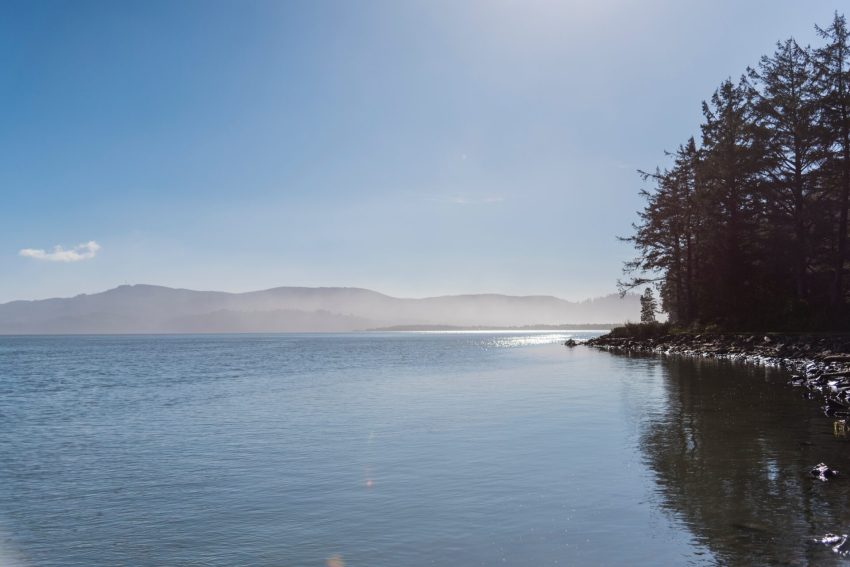By Scott Gordon, Friends of Tillamook Bay
Reporter Mateusz Perkowski recently published a story in the Capital Press about the Northwest Environmental Defense Center and Northwest Guides and Anglers Association having filed a federal complaint seeking an injunction to block Pacific Seafood Aquaculture and affiliated companies from discharging pollutants through mechanical harvesting in Tillamook Bay. This practice involves boats dragging harrows across the bottom to bring oysters up out of the silt and then scraping the bottom with dredges when mature oysters are harvested. This action increases turbidity, but more importantly it rips eelgrass out of the bottom by its roots.
Eelgrass provides essential nutrients and cover for salmon and steelhead smolts as they make their way downstream out of rivers transitioning from fresh water to saltwater to begin their ocean migration. It is also home to a myriad of other species of marine life including juvenile Dungeness crab.
It was reported that a Pacific Seafood spokesperson said that the company is deeply committed to environmental stewardship, that the company’s harvesting methods have a positive effect on the bay’s ecosystem, and that they stand firmly by their compliance with all applicable regulations as well as their long-standing commitment to sustainable practices.
The reality is quite different. Tillamook Bay Estuaries Partnership recently completed a study of eelgrass beds in Tillamook Bay using high definition imagery from satellites along with their own drone flyovers. Their findings, presented at a recent Coastal Conservation Association meeting, showed clear evidence of eelgrass bed damage in multiple areas that could only have been caused by mechanized aquaculture. Since Pacific Seafood is the only oyster farming operation in Tillamook Bay using dredge boats, it’s clear who is doing the damage. In addition, they have operated for at least a decade without ever obtaining the required dredge permit from the U.S. Army Corps of Engineers.
The eelgrass is crucial for the health of marine life in Tillamook Bay. Just imagine what that means in terms of the economy of our communities surrounding the bay. We enjoy the bounty the bay provides, but there are thousands of tourists that travel here each year to enjoy it as well. That brings in revenue to restaurants, motels, STRs, gas stations, grocery stores, etc. Bottom line: we need to protect our bay and its fragile ecosystems.
So what can you do to help? When ordering oysters make sure the restaurant or seafood counter is sourcing the product from farm operations that use hand methods of raising oysters that don’t compete with the grass. Write your local legislators and tell them your concerns and that you would support legislation banning mechanized means of raising oysters.
With farm operations using best practices we can keep our bay healthy and eat delicious oysters too!
Friends Of Tillamook Bay is a grass roots group of concerned citizens who have witnessed first hand the devastating effects of mechanized aquaculture in Tillamook bay and, being frustrated with the inaction of both governmental and private organizations to do anything about it, is taking the on the task of raising public awareness in the hopes of affecting policy change.
Contact: friendsoftillamookbay@gmail.com


.png)